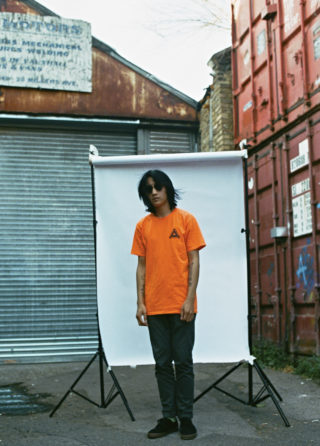Eyedress – Laconic indie hip-hop from Manila, about Manila and for Manila
"I just try to make sure the quality is as good as I want it to be. I’m your indie Kanye."
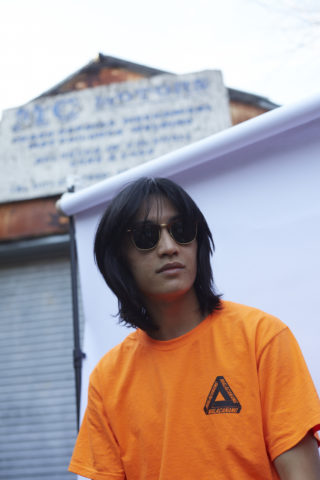
"I just try to make sure the quality is as good as I want it to be. I’m your indie Kanye."
Idris Vicuña – the Filipino hip-hop artist better known as Eyedress – has a slow, syrupy voice, thick and sweet. Speaking to him is like listening to someone talk through treacle. He is spaced out during our conversation, languorous and palpably exhausted, so it isn’t a huge surprise when he tells me that he is on a massive mushroom comedown and feeling a bit out of it having arrived in a rain-drenched Paris after an all-nighter in Amsterdam where he and his band performed the night before.
“We took magic truffles last night so we’re like zombies now. I don’t even know how I’m still awake.”
“How were the mushrooms?”
“It was scary at one point, but fun though. We were in our hotel room tripping out. We wanted to have the whole Amsterdam experience.” He pauses for a long time, as if he has dropped the thread of his thoughts. “We played a show there. The show was cool. I think some people bought some records, so that’s good enough for me.”
Eyedress is touring his album – the brilliant but terribly titled ‘Manila Ice’ – a celebration of the Manila music scene, made in collaboration with friends and peers from his home city. It was written after he returned from a stint in the UK in 2015, where he was signed to XL Recordings.
“[XL] had me collaborating with people who they found suitable. It made me miss my friends back home and everything we were doing back there. So when I got home I decided to make an album with my friends.” There is another long, vacant silence. “So yeah. I moved back and I wanted to make this album with friends because I missed all the things we were doing before I left – so when I got back that was my goal, to work with all the most passionate, serious artists in my town.”
He tells me that the title is a reference to a joke made by Josh from Jungle (the London-based soul band), but that the intention of the album is serious: to showcase Manila’s talent, to use only Manila-based artists.
“Well,” Eyedress clarifies, “except Prefuse 73 – he’s also signed to Lex [Eyedress’ new label]. He got me signed so that doesn’t count. He’s the only one who’s not Filipino. I just thought all my friends are really good at what they do. I know most of them through the Internet and what they’ve posted online. How can we put two and two together and come up with something bigger than all of them, I guess? Because everyone working together, it’s always more grand. Everyone’s going out of his or her way to make time, to make something worthwhile. I just wanted to show that so people would stop asking me what the music scene is like and I could just give them an album and show them – from my point of view at least.”
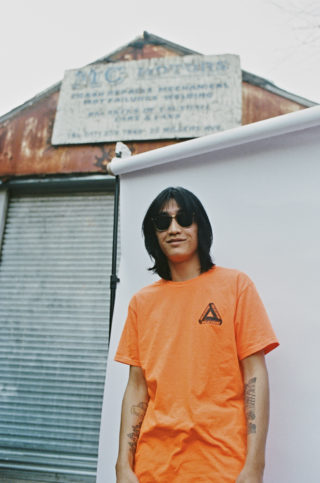
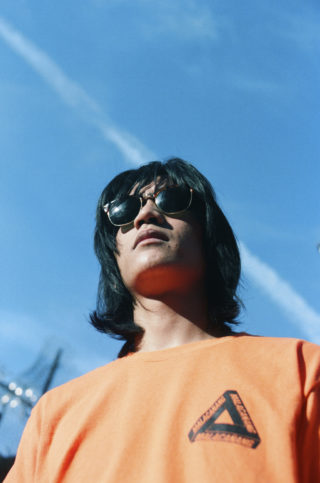
Idris is especially proud of the collaborations with his girlfriend, Jasmine (she sings on ‘Pentagram Land’ and ‘Love all Around’). “They’re really personal and sweet to me. My parent’s are still married, so I’ve always seen how love can be such a good thing. You work together and make an effort for each other.”
His girlfriend is not on the tour; she is back home, watching their baby. Eyedress clearly finds it hard to be away from his family. “But I know they’re ok. We have help around the house. I know I’m going to come back and see them, so I try to be patient.
“This album does mean a lot to me,” he continues. “I was getting therapy when I was making this album. I was getting really paranoid; a lot of things happened to me that really shaped who I am. This album is me trying to grow up. I used to make songs out of love. I’d be in love with some girl and make this music for her. It was kind of cheesy. And then when you grow up you realise love isn’t… it’s not holding hands and that. Some of the songs are about my friends, about my family. I just wanted it to be about me, all the super-embarrassing stuff: emo, sad. This album is just me being as vulnerable as possible.”
The political climate in the Philippines is one area in which I imagine Eyedress feels particularly vulnerable. It’s extremely fraught, with an oppressive right-wing government and insurgent militant groups engaged in frequent and violent clashes. Terrorist attacks are common. On 23 May 2017, President Duterte declared martial law for the whole of the island province Mindanao for 60 days “in order to suppress lawless violence and rebellion and for public safety.” Creating music in this climate must be difficult. Eyedress sighs when I ask him about how the national politics influence his music.
“I’m not like a super political person,” he says. “It’s quite a dangerous place to stand up against those in power because they could just have me killed. I just wanted to give a non-biased perspective and just show the reality. I wasn’t trying to exaggerate it or anything. All the things going on makes me more socially aware – all the things I’m saying or doing. I’m not going to contribute to any of the conflict in this world. There’s enough already. Especially in my country. There’s not really much I can do; I’m not a politician, I don’t have my own private army – I just try to lay low.”
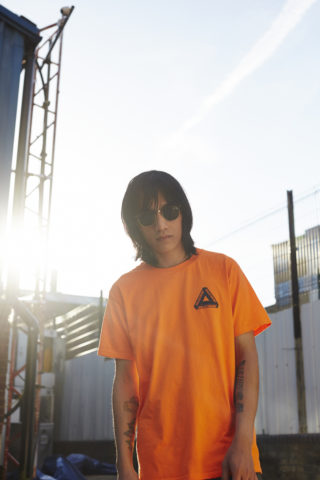
Midway through our chat I mention to Eyedress that I was particularly struck by the album artwork. He seems pleased, if a little surprised, and tells me that it is his own drawing, that in fact visual art is one of his life-long, all-consuming passions.
“I drew everything [on the album]. It’s just me in Manila. That’s what it looks like to me at least. I’m always angry because cabs don’t want to pick me up. I get stressed over traffic and things that just can’t be fixed. There’s a lot of problems in Manila – things that are just never gonna work out. Everyone’s corrupt: they’re openly corrupt; it’s out there in your face. You’re gonna see it. So the album cover is just a representation of the chaos we face daily. I’m not the only one who has it hard. We go through the struggle of living there – it being a third world country, having to turn a blind eye to the poverty all around us. The only thing we can do is just tell it how it is. With the truth out there maybe, hopefully that changes something.”
He warms to the subject of his artwork, speaking with an endearing, animated modesty. He tells me how a painter friend helped him exhibit four of his drawings in a recent professional show. “I exhibited with real artists. I didn’t go to college or anything like that but all the people I exhibited with did. It was just luck really. I made it really expensive because it’s the original art from my album. But no one bought it.” He laughs. “That’s not what I do it for. I just like to get stoned and draw really. Though it would be nice.
“I just draw with sharpies. My dad is an animator: that was his first job, so he’s super talented. I’m never gonna be as good as him, he can draw an explosion frame by frame. This is just me trying to make my dad proud. I’ll never be as great an artist as he is, but I can try and even if my art seems childish or kiddy… I’m not van Gogh or anything. I’m trying to be political. I’m trying to communicate something. So I do that through my drawing – I could write a song or something but I don’t wanna seem to preach. If I could alter people’s perspectives, that’s the goal really.
“I guess I’m just trying to carry out my vision. I want my drawings to be…’ he tails off, remembering, I assume, that this is an interview about his music. “I’m definitely gonna make a bunch of albums, and hopefully my artwork can represent the sounds I’m trying to convey and the place I live in. Hopefully my videos can reflect what I’m trying to say. I’m trying to get on a movie level.”
“My dad’s a director,” he says, “so I made a skating film a while ago, and I’m kind of a wannabe director. I’d like to combine everything I’m doing – the music, the visual art. That’s what I’m trying to achieve with my brand. I make clothes. Well, everybody makes clothes. I mean, I need to make money for my baby, so I’m trying – not a capitalist venture – I guess it’s just me seeing the value in what I make and hoping others will too and want to support me. I make clothes – I work for a gallery and make clothes. I didn’t go to school or anything.” He still speaks with that slow, treacly drawl. “I’m just trying to get by with what I know how to do. I don’t print the T-shirts myself, I work with a team. I just try to make sure the quality is as good as I want it to be. I’m your indie Kanye.”
